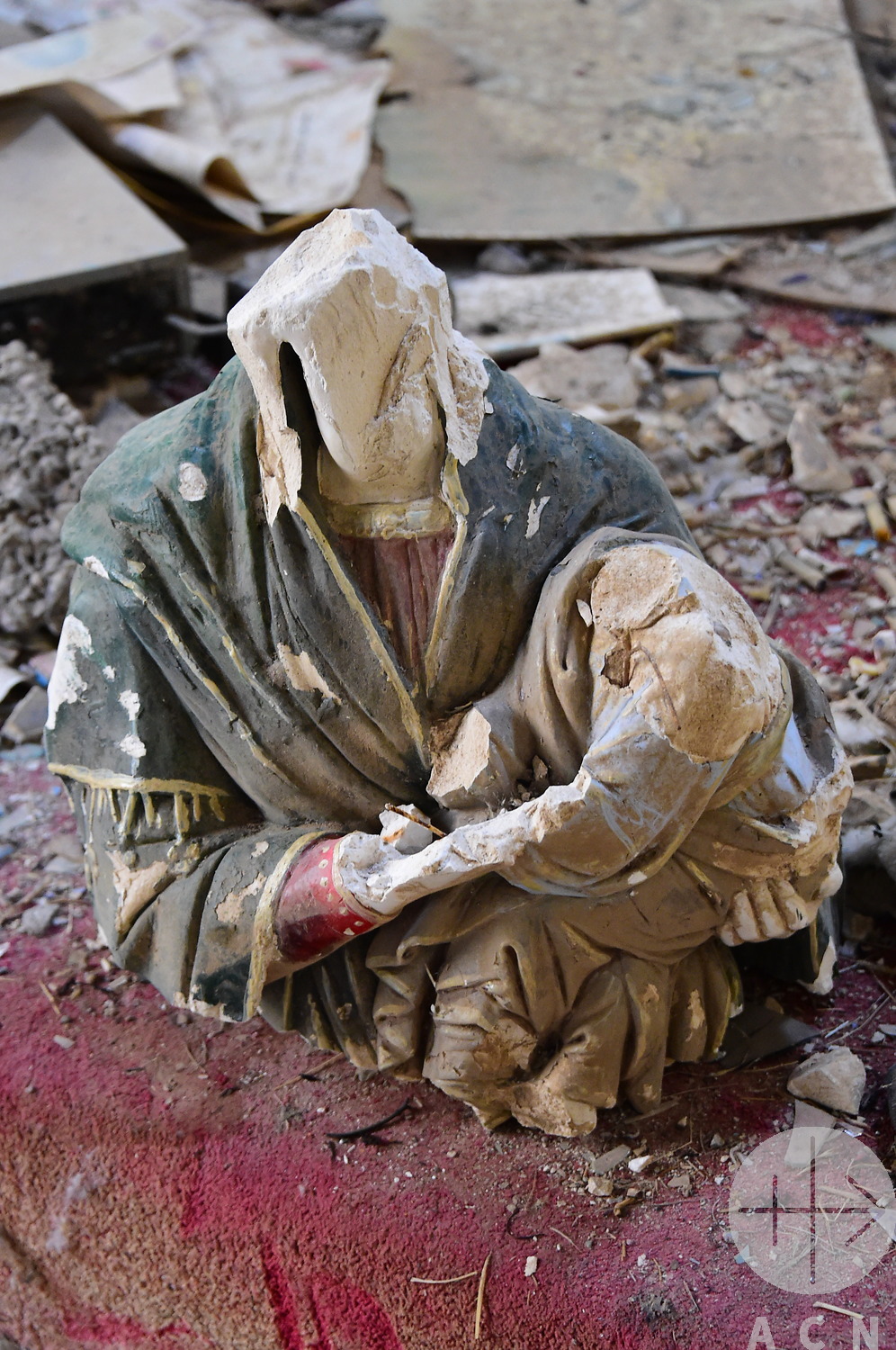|
A 'Marshall Plan' for Iraq: rebuilding Christian villages on the Nineveh plains
Friday, January 27, 2017
"ACN has to support these people in this decisive and historical moment for Christians in Iraq."
By Maria Lozano
NEW YORK—“Hope is
coming back to the Nineveh plains!” That is the verdict of the Middle East
expert of Aid to the Church in Need (ACN), the international Catholic charity.
Just back from a fact-finding
mission to the region in northern Iraq recently liberated from the grip of
ISIS, Father Andrzej Halemba said that “despite the many urgent questions that need
clarification, people are willing to return to their villages.” The biggest
challenges include the illegal property appropriations of abandoned homes, an
investigation into the alleged use of chemical weapons in the destruction of
Christian houses, and—for those Christian families who contemplate going home—the
ongoing fears of assaults Islamic fundamentalists opposed to the return of
Christians to their ancient homeland.
Father Halemba noted a major change
in the attitude of the Christian IDPs—who have been cared for by the Chaldean
Archdiocese of Erbil since their expulsion from the Nineveh plains in the
summer of 2014. Last November—during a heightened stage of the battle for Mosul—an
ACN survey showed just 1 percent of IDS wished to return. A current estimate
holds that, presently, 50 percent of IDPs are willing to return. Meanwhile, ACN
is called upon to continue caring for the IDPs pending their repatriation. For
the next six months at least, 12,000 families will continue to rely on monthly
food baskets, while 5,000 families need help paying their rent.

Taking the long view of the situation
on the Nineveh plains, Father Halemba calls on the international community to
launch “a new Marshall Plan,” modeled on the historic US initiative of investment
and development aid that helped Western Europe regain economic stability after
World War II.
He said that the first order of
business is a careful assessment of the damages done to homes and infrastructure—and
the costs involved in the rebuilding process—in some 10 villages, with
properties belonging to Syrian Catholics, Syrian Orthodox as well as Chaldean
faithful.
The next step planned is a follow-up
to the November 2016 survey of the at least 1,200 families of IDPs in Erbil,
probing whether they wish to return to their former homes. Based on the
assessment of destruction on the Nineveh plain and the survey of the intent to
return, ACN will establish a special committee that will supervise a
comprehensive Marshall Plan for the Nineveh plains.
This grand initiative will be executed
by ACN in partnership with other charities. Besides reconstruction efforts,
other important issues await addressing. Father Halemba said: “the legal issues
need to be considered; this includes, for example, the right to full
citizenship of Iraqi Christians and the involvement of the Iraqi government in
the reconstruction process.
"The government should be responsible for creating
structures and job projects, while making sure there is security for Christians
in their villages.” He also said the international community must get involved
and that it is “very important to properly collate the documentation of the
destruction and the violent acts persecution so that, in some way, a sense of
justice and peace can return and help ensure this never happens again.”
At first no families were expected
to return before June, but a few families have decided to make the move already
this winter. Father Halemba said: “we have to see if we can refocus part of our
help for the communities in Erbil to a ‘start-up support’ plan for the Nineveh
plains.
"These people also rely on the Church—they look to the Church as a sign
of security and stability and so ACN has to help religious sisters and priests
to go back with their flocks. ACN has to support these people in this decisive
and historical moment for Christians in Iraq.”
Aid to the Church in Need has been supporting the Christians in Iraq since 2014 with
close to $30M in aid for emergency relief projects, education, food and other
forms of subsistence support.
Destruction on the Nineveh plains; ACN photo
|